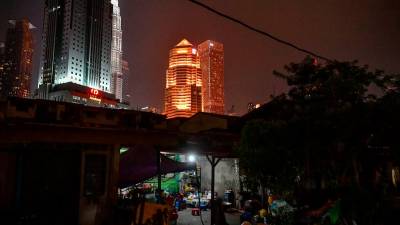PETALING JAYA: Malaysia’s ambition to generate 70% of its electricity from renewable energy (RE) by 2050 can be achieved if resilience is built into every stage of the transition, an energy expert said.
Universiti Tenaga Nasional Institute of Energy Policy and Research director Dr Nora Yusma Mohammed Yusoff said the country must not measure progress solely by the number of solar farms built or megawatts installed.
Instead, she said Malaysia must fortify the backbone of its power system – storage, stability and interconnections.
“This is not about whether renewable energy works. It is whether the system can withstand stress. A modern grid must be designed with resilience as its foundation, not as an afterthought.”
Malaysia’s power mix remains dominated by coal and gas, which together make up about 70% of supply. Nora said while this fossil-heavy base provides short-term stability, it locks the country into high emissions and leaves it vulnerable to volatile fuel prices.
She warned that fragility could set in as renewables grow unless safeguards are deliberately built into the system.
She cited the blackout across the Iberian Peninsula in April as a cautionary tale.
“The collapse of the Iberian grid left millions in Spain, Portugal and parts of France without electricity for up to a day, disrupting hospitals, transport and businesses.
“That blackout was not a failure of renewable energy, but of resilience. High reliance on solar, low system inertia and weak interconnections combined to push a modern grid past breaking point.
“Malaysia must learn from this and ensure our transition strengthens both sustainability and security.”
Nora said building resilience demands both technological investment and policy reform.
“Every large-scale renewable project must be paired with battery storage systems, grid-forming inverters and fast-response reserves to keep the grid stable.
“At the same time, regulations and tariffs must reward flexibility and stability, not just cheap generation.”
She added that financing should flow to “invisible” but critical parts of the transition such as digitalisation, grid modernisation and storage, not only to visible assets like solar farms and wind turbines.
Nora also underlined the importance of regional cooperation, urging Malaysia to treat the Asean Power Grid (APG) as an urgent resilience tool rather than a distant aspiration.
“No grid is invincible, but interconnected grids provide countries with vital backup when systems are under stress. Malaysia must see the APG as essential to our energy security.”
Ultimately, she said success will not be measured by capacity alone, but by whether daily life continues uninterrupted.
“The real blackout to fear is not just on the grid, but in the resilience of society itself. Success will mean that lights stay on in hospitals, water flows in our taps, children can study without interruption and businesses can operate without fear of collapse.”
Her warning comes as the government accelerates work on the APG by studying the European Union’s cross-border electricity model.
Last week, Deputy Prime Minister and Energy Transition Minister Datuk Seri Fadillah Yusof said Malaysia would work with EU counterparts on harmonised rules, financing frameworks and technical standards to help Asean overcome regulatory and financial hurdles.
He confirmed that a memorandum of understanding to strengthen APG cooperation will be signed at the upcoming Asean Energy Ministers’ Meeting.
